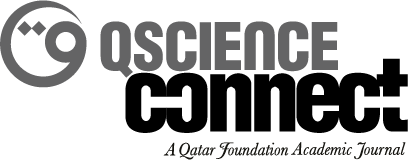-
oa Narrative Medicine and Service Learning for Medical Students Working with Persons Living with Cancer in Qatar
- Source: QScience Connect, Volume 2022, Issue Issue 3- Medical Humanities in the Middle East Conference, Aug 2022,
-
- 31 August 2022
Abstract
Objective: The study reports on medical student learning outcomes from a cancer survivorship narrative medicine service-learning project in Doha, State of Qatar.
Methodology: From 2014-2017 students at Weill Cornell Medical College in Qatar in collaboration with persons living with cancer wrote stories of the patients’ cancer journeys published in a dual language Arabic / English book entitled قصة الامل (Story of Hope). The stories examined the socioeconomic, psychosocial, and familial impact of acute and chronic disease from the patients’ perspective. The Story of Hope is used throughout Qatar in peer-peer patient education groups. The research was approved for human subjects research by the Internal Review Boards of Weill Cornell Medicine-Qatar and Hamad Medical Corporation in 2014 and 2016. A convenience sample of 9 medical and premedical students participated in semi-structured taped audio interviews and filled out a questionnaire with free response and 5-point Likert Scale items (mixed methods research). Grounded Theory methods (Glaser & Strauss) were used to establish nine themes in the transcribed interview data, and themes were correlated with the questionnaire data.
Results: On average, the student participants in the study only had previous encounters with cancer patients of less than 1 hour. The project represented the first one-on-one meeting with a cancer patient for 80.0% of the students. Most students agreed (20.0%=strongly agreed, with 60.0%=agreed) that their encounters with patients changed their perspective on all aspects of cancer. The students unanimously agreed (80.0%=strongly agreed, and 20.0% =agreed) that service learning should be formally integrated into medical education. Some of the key themes from the interviews included: 1. Cancer Stigma: “M9: “as long as there is a strong stereotype against cancer, there is a big fear from the society about cancer. So, I don’t see how people would be willing to actually volunteer to go out of their daily routine and do a checkup for cancer.” 2. Delivering Diagnosis: “M3: I will spend a lot of time, I mean maybe an equivalent amount of time thinking about how to find a way to break this news down to people, as opposed to spending a lot of time discovering what treatment plans, I mean obviously that is very important…. on how to actually introduce this new change.” 3. Family Dynamics in Cancer: “M8: ...and family support is important and even when we deal with a patient as a physician, we should not deal with the patient himself, we should deal with the whole group, like the patient, the sister, the mother, brother….I have to orchestrate how everyone can help.”
Conclusions: The study provides proof of concept for the teaching of narrative medicine in a service-learning format in medical education in a high-income but developing Middle Eastern country. Positive effects in student learning were observed, as well as improvements in the psychosocial functioning of persons living with cancer. The research additionally provides evidence for the value of incorporating the patient perspective on disease into health training to teach human factors in disease and social determinants of health.


